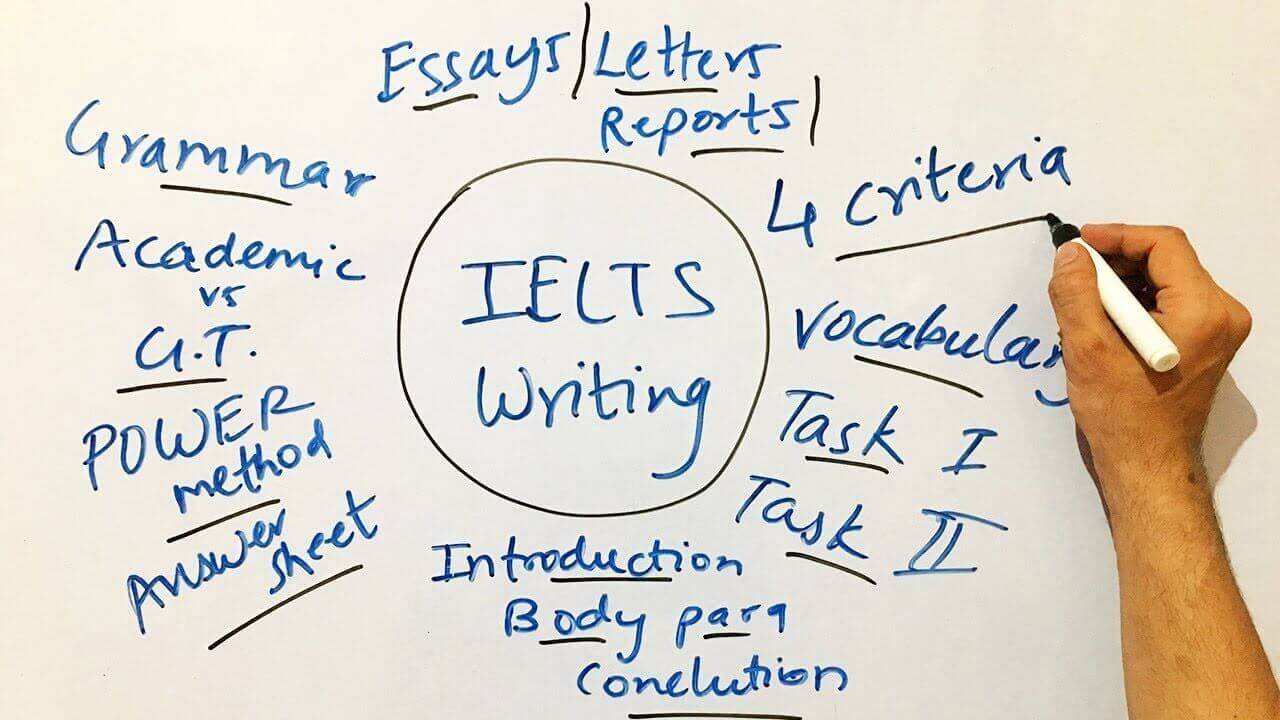Intro to the IELTS Writing Paper
Intro to the IELTS Writing Paper Like the rest of the exam, the IELTS academic writing paper takes some the skills and competencies required for...
Flexible group courses for everyday communication and fluency.
Academic EnglishPrepare for university study with advanced academic language skills.
Business EnglishEnglish for professional communication in corporate and workplace settings.
Private LessonsOne-to-one lessons tailored to your goals, schedule and interests.
Language ExcursionsLearn English while exploring Cape Town with your teacher as your guide.
Get the score you need with targeted strategies and expert support.
Cambridge ExamsPrepare for the FCE or CAE with structured, high-quality training.
TOEFL PreparationBuild confidence and test skills to succeed in the TOEFL exam.
Personalised one-to-one English lessons delivered online, on your schedule.
Corporate GroupsLive online training for teams, customised to your organisation’s needs.
English for Tech ProfessionalsSelf-paced English course designed for developers, engineers, and IT teams.
Qualify to teach English in South Africa or abroad with this practical course.
Blended Certificate in TEFLCombine online study with hands-on classroom experience in Cape Town.
Learn in a historic university campus right in the city centre.
Tours and ActivitiesExplore Cape Town and make friends through weekly excursions.
Social ProgrammeJoin our schedule of fun events, outings and conversations.
Getting AroundTips and tools for navigating the city like a local.
Social and DigitalStay connected online and through our vibrant student community.
A friendly, sociable student house just a short walk from school.
Adderley StudiosModern, secure apartments in the heart of Cape Town.
HomestayLive with a local family and experience South African culture.
Hotels & AparthotelsIndependent options for comfort, privacy and flexibility.
All tuition and accommodation fees in one clear table.
Booking InformationWhat to expect before, during and after you book.
Instalment PlansFlexible payment options for long-term bookings.
User LoginView your bookings, make payments, and manage your details.
Visa options and support for international students coming to South Africa.
Insurance & TravelWhat you need to know about travel, insurance and staying safe.
MyELC AppAccess your timetable, progress and more on the student app.
Arrival and OrientationHow we help you settle in on your first day in Cape Town.
How to request certificates, transcripts, or proof of enrolment.
Terms & ConditionsThe small print — bookings, cancellations, and more.
Contact UsGet in touch with the ELC team by email, phone or WhatsApp.
Privacy PolicyHow we protect your data and respect your privacy.
What makes ELC and UCT a great place to learn English.
About the University of Cape TownSouth Africa’s leading university and home to the ELC.
About the English Language CentreWho we are, what we offer, and how we teach.
Our TeamMeet the teachers, support staff and leadership team behind ELC.
Our international quality standards and endorsements.
Media & PressNews coverage, interviews and media mentions of ELC.
TestimonialsWhat our students, partners and teachers say about us.
BlogUpdates, stories and insights from the ELC community.
Flexible group courses for everyday communication and fluency.
Prepare for university study with advanced academic language skills.
English for professional communication in corporate and workplace settings.
One-to-one lessons tailored to your goals, schedule and interests.
Learn English while exploring Cape Town with your teacher as your guide.
Get the score you need with targeted strategies and expert support.
Prepare for the FCE or CAE with structured, high-quality training.
Build confidence and test skills to succeed in the TOEFL exam.
Personalised one-to-one English lessons delivered online, on your schedule.
Live online training for teams, customised to your organisation’s needs.
English for Tech Professionals
Self-paced English course designed for developers, engineers, and IT teams.
Qualify to teach English in South Africa or abroad with this practical course.
Combine online study with hands-on classroom experience in Cape Town.
Learn in a historic university campus right in the city centre.
Explore Cape Town and make friends through weekly excursions.
Join our schedule of fun events, outings and conversations.
Tips and tools for navigating the city like a local.
Stay connected online and through our vibrant student community.
A friendly, sociable student house just a short walk from school.
Modern, secure apartments in the heart of Cape Town.
Live with a local family and experience South African culture.
Independent options for comfort, privacy and flexibility.
Use our Course Wizard to match your goals and level to the best option
Course WizardAll tuition and accommodation fees in one clear table.
What to expect before, during and after you book.
Flexible payment options for long-term bookings.
View your bookings, make payments, and manage your details.
Visa options and support for international students coming to South Africa.
What you need to know about travel, insurance and staying safe.
Access your timetable, progress and more on the student app.
How we help you settle in on your first day in Cape Town.
How to request certificates, transcripts, or proof of enrolment.
The small print — bookings, cancellations, and more.
Get in touch with the ELC team by email, phone or WhatsApp.
How we protect your data and respect your privacy.
What makes ELC and UCT a great place to learn English.
About the University of Cape Town
South Africa’s leading university and home to the ELC.
About the English Language Centre
Who we are, what we offer, and how we teach.
Meet the teachers, support staff and leadership team behind ELC.
Our international quality standards and endorsements.
News coverage, interviews and media mentions of ELC.
What our students, partners and teachers say about us.
Updates, stories and insights from the ELC community.

The UCT English Language Centre runs a Cambridge Advanced Certificate (CAE) exam preparation course. In the CAE course, students focus on preparing for the exam and teachers introduce and teach a number of strategies and tips for optimally completing all parts of the exam. One such strategy that is trained in class is the writing of an opinion based essay.
An opinion essay is a formal piece of writing which requires your opinion on a topic. Your opinion should be stated clearly. Throughout the essay you will give various arguments/reasons/viewpoints on the topic and these will be supported by evidence and/or examples. You could also include an opposing viewpoint in a paragraph.
1. Title
When writing your title ask yourself: Do you agree or disagree with your topic? Then write that statement as the title of your essay. (Example title: Poaching should be banned internationally.)
2. Introduction
-‘Hook’: The first paragraph of an essay is the introduction and needs to include a ‘hook’ which is writing that grabs the reader’s attention. A ‘hook’ can include data or a statistic.
-Thesis statement: The introduction also includes the thesis statement. A thesis statement is the major statement or claim or opinion of your essay.
3. Argument/Reason
In an opinion based essay you will make several arguments that will defend your thesis statement. For every argument/reason you need to provide evidence. You could have several arguments or reasons
4. Supporting evidence
Every argument/reason must be supported by evidence which can be in the form of additional research, quoting an academic/paper, data and graphics. What is important here is that the research and data are accurate and actually defend you reason.
*There can be several argument/reason paragraphs followed by several supporting paragraphs. You could also mention an opposing viewpoint in one of these paragraphs.
5. Conclusion
The conclusion of any essay sums up the thoughts and ideas that were written throughout the essay. In an opinion based essay conclusion, the thesis statement is usually rewritten in the writer’s own words to highlight his/her agreement or disagreement with the topic. A conclusion is a powerful way to end an essay and should leave the reader (Example: To sum up, poaching kills thousands of animals annually resulting in many species on the endangered species list. Conservation of these animals is expensive and time-consuming. I believe it is therefore undeniable that there should be a ban on international poaching.)
-use connectors and linking words throughout
-keep your style formal (no abbreviations, slang or informal phrases)
-write in a logical sequence that is easy to follow
-if you are writing your essay by hand, write neatly and legibly

Intro to the IELTS Writing Paper Like the rest of the exam, the IELTS academic writing paper takes some the skills and competencies required for...

Strategies for IELTS Academic Writing Task 1 (2/2) In our last post we looked at how to introduce, plan and structure your IELTS academic writing...

Common Transition Signal Errors and How to Fix Them If you ever have the chance, google the band Modest Mouse and listen to their music. Just so...